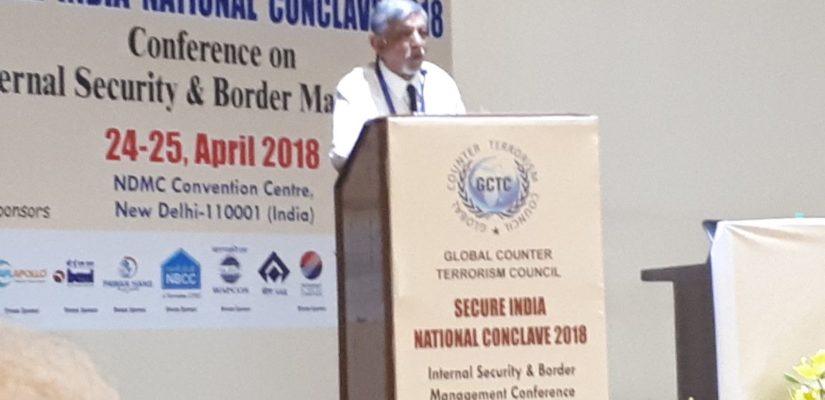
Nation security debates must be part of election discussions (English Version) Rakshak News 03 Apr 19
http://www.rakshaknews.com/vishesh/why-not-discuss-national-security-in-electoral-debates
Nation security debates must be part of election discussions (English Version) Rakshak News 03 Apr 19
There is a vast difference in views of political parties when it comes to national security and the armed forces. The Congress claims it acted against Pakistan during its tenure in the centre, however never broadcasted the same. The BJP, on the other hand, seeks to project itself as the only party which can respond to Pak’s support to terror groups. The BJP further accuses the Congress of not granting OROP which they did (despite it being a one-time grant) and ignoring defence preparedness. In every case, political parties have strayed away from the truth.
The BJP sought to project itself as the only party which launched strikes against Pak for terrorist actions. Its posters even had photographs of Wing Commander Abhinandan, the Indian pilot captured by Pakistan and the Pulwama martyrs, until the election commission came down hard. There is no doubt that all political parties have sought to politicise the armed forces for their personal gains, as also grabbing the large military community vote bank.
Both parties have also been accusing the other of corruption in defence deals. Thus, realistically, issues being discussed are farcical, exploiting the armed forces for political gains and projecting half fulfilled schemes as their achievements. On the other hand, parties have attacked service chiefs on multiple occasions in the recent past for their comments on aspects which concern national security. This has fortunately taken a backseat in recent times as elections are drawing close.
The most recent incident was when the air force chief stated during the induction of the Chinook helicopters, that had the Rafale been in the Indian Air Force inventory, Pak aircraft would never have attempted to cross the LoC. Congress spokesperson, Manish Tiwari, objected to this comment stating that it was ‘politically loaded in election time and has implications on India’s current deterrence capabilities.’
On the contrary, as the elections draw close, political parties make promises which they would never be able to fulfil in a life time. Sops of a kind which no budget could ever allow is being thrown at the public, reality having no concern. They presume the Indian public to be so gullible as to fall for such vague promises and comments.
No discussion in any election has ever taken place on national security, which would always remain one of the most important responsibilities of any government at the centre. Development of a nation depends on its national security. An insecure nation would never draw investment and technology. The example of Pakistan is evident. India has grown because the nation and its institutions are secure.
Discussion on national security implies visualizing possible threats, relationship with adversaries, developing capabilities of the armed forces, either by enhancing home grown technology or by allocating funds to ensure imports. It also includes management and administration of defence including integrating the armed forces and amalgamating the Ministry of Defence and service HQs.
While India does not have the system of debates between leaders of political parties, on a common platform, for comparison of views, it could be discussed across multiple media networks by senior party spokespersons conveying their respective political party views. In such a discussion the audience should be permitted to ask questions and draw their own conclusions. Topics could be shared in advance between the parties to project their initial view, prior to it being opened to questions.
It is expected that political parties may offer solutions which are beyond the realm of possibility solely to seek acceptability, however an aware audience would checkmate such attempts. It would also indicate the level of awareness of the parties on such issues.
There are multiple channels with a large TRP, which could be the first to initiate such discussions, with an open audience. It would at least force political parties to stop making false claims and promises and become realistic in their approach. Indian elections should not only be based on internal issues, vague promises and accusations but also have the right mix of international relations, alliances and national security, as these govern the future of the country. It is hoped that some media house takes the plunge and commences this debate. It may be a game changer for the future.